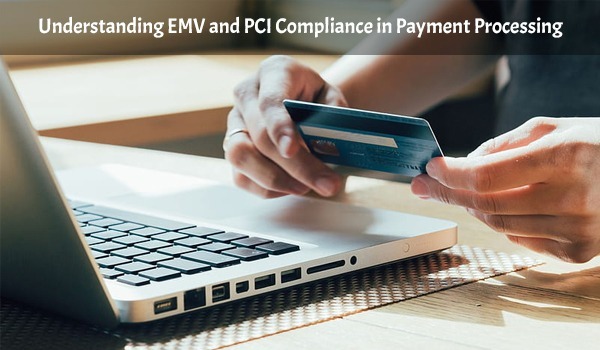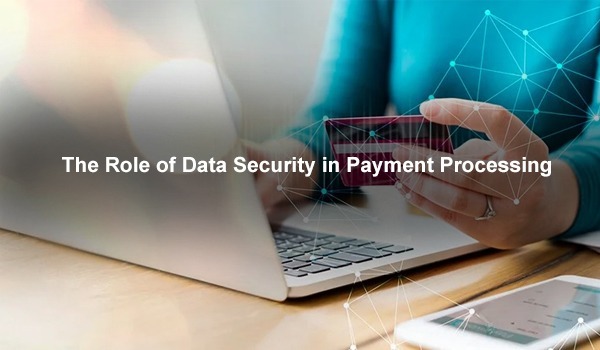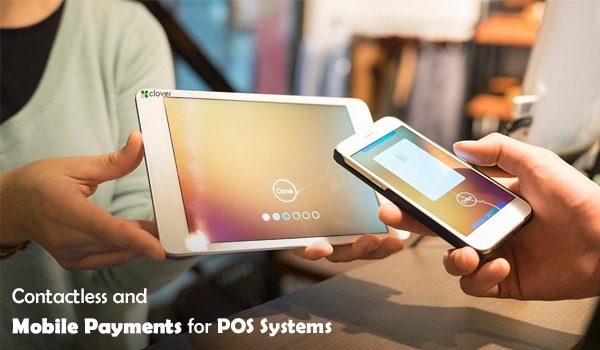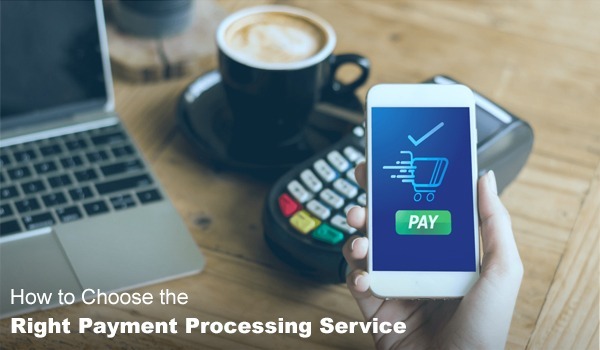
Introduction to CardConnect and RMH
In the world of payment processing, there are two key acronyms that business owners need to understand: EMV and PCI. EMV stands for Europay, Mastercard, and Visa, while PCI stands for Payment Card Industry. Both of these terms refer to security standards that are crucial for businesses that accept credit and debit card payments. In this article, we'll dive deeper into what EMV and PCI compliance means and why they are essential for your point-of-sale (POS) system.
Microsoft RMH with CardConnect integration provides businesses with an easy and secure way to process payments at their Point of Sale (POS) system. By integrating with CardConnect, companies can process EMV-compatible payments and be PCI-compliant in the process. The integration also provides businesses with an easy and secure way to manage their payments, reduce fraud risk, and more.
CardConnect has been providing payment processing solutions for over 20 years and is a trusted provider for businesses of all sizes. Through its EMV/PCI-compliant solutions, CardConnect helps protect businesses from fraudulent transactions and provides enhanced security features such as tokenization and encryption. CardConnect also provides businesses with integrated tools for analytics, reporting, and more.
With the Microsoft RMH integration, businesses can quickly and easily connect their POS system to CardConnect and start processing payments. The integration is secure, and reliable, and provides businesses with the features they need to process payments seamlessly. Companies can also take advantage of CardConnect’s advanced fraud prevention and secure payment solutions.
EMV Compliance
EMV compliance refers to the use of credit and debit cards with embedded microprocessor chips. These chips generate a unique code for each transaction, making it much more difficult for fraudsters to skim or clone card data. EMV technology has been around for decades in Europe and other parts of the world but only gained widespread adoption in the US in 2015.
One of the key benefits of EMV compliance is a reduction in liability for businesses that accept card payments. Prior to the adoption of EMV technology, card issuers were typically responsible for fraudulent transactions. However, with the introduction of EMV technology, liability shifted to businesses that did not adopt the new technology. Therefore, if a business is not EMV compliant and experiences fraudulent transactions, it may be liable for the losses.
Understanding PCI Compliance and Its Impact on Your POS System
PCI compliance is an important requirement for any business that accepts credit cards. It is designed to protect cardholder data and ensure that payment processing is done in a secure manner. As a business owner, it is important to understand the requirements of PCI compliance and how it impacts your Point-of-Sale (POS) system.
When using a POS system that integrates with Microsoft Rmh and CardConnect, you must make sure that the system is compliant with PCI DSS standards. This includes ensuring that the system is secure and that any sensitive information is encrypted. Additionally, the system must be able to detect and prevent unauthorized access to card data and must have certain policies and procedures in place to protect cardholder data.
It is important to note that the PCI compliance requirements may vary depending on the merchant's processing volume and the type of card data the merchant processes. For example, if the merchant only processes debit cards, they may not have to comply with the same requirements as a merchant that processes credit cards. Furthermore, the PCI compliance requirements may also change over time. It is important to stay up-to-date on any changes to ensure that your POS system is compliant. By understanding the requirements of PCI compliance and its impact on your POS
How to Ensure Your POS System Is EMV and PCI Compliant.?
- Check the compliance of the POS system: Check the POS system for its EMV and PCI compliance. Ensure that the POS system is certified for EMV and PCI compliance.
- Review the processor’s security policy: It is essential to review the processor’s security policy for compliance with EMV and PCI standards.
- Ensure encryption: The POS system should be set up with encryption to ensure that the customer’s data is secure.
- Use a trusted payment gateway: To ensure secure transactions, it is important to use a trusted payment gateway such as CardConnect.
- Use tokenization: Tokenization is an important security measure to ensure that customers’ data is not stored in the system.
- Use two-factor authentication: Two-factor authentication is a security measure that adds an extra layer of security to the payment process.
- Use secure networks: It is important to ensure that the POS system is connected to a secure network.
- Regularly update the system: Ensure that the POS system is regularly updated with the latest security patches and updates.
Protecting Your Business from Fraud with EMV and PCI Compliance
- EMV Compliance: EMV is an acronym for Europay, Mastercard, and Visa – the three companies responsible for developing the security standard for chip-enabled cards. EMV compliance is a requirement for any business that processes credit cards. EMV is designed to reduce the risk of payment card fraud by using a chip-enabled card and a PIN. This technology is more secure than traditional magnetic-stripe cards, as it creates a unique code for every transaction, making it nearly impossible for fraudsters to clone the card.
- PCI Compliance: The Payment Card Industry Data Security Standard (PCI DSS) is a set of regulations that all businesses must adhere to if they are processing, storing, or transmitting payment card data. The PCI DSS protects cardholder data from being stolen or misused. Businesses must complete an annual self-assessment questionnaire and may be required to undergo an on-site assessment to ensure they are in compliance with the standards.
- Microsoft RMS with CardConnect Integration: Microsoft RMS (Retail Management System) is a complete retail management system that helps retailers to manage their business more efficiently. It includes features to track sales, inventory, customers, and more.
How to Implement EMV and PCI Compliance for Your POS System
- First, you need to ensure that you are using compliant hardware and software. This includes ensuring that your POS system is EMV- and PCI-compliant. You can do this by researching the various certifications and standards that EMV and PCI comply with and making sure that your equipment meets these standards.
- Once you have ensured that your hardware and software are compliant, you need to integrate your POS system with the CardConnect integration provided by Microsoft RMH. This integration will allow you to securely process EMV and PCI-compliant payments.
- You will need to create an account with CardConnect and set up your merchant credentials. This includes providing information such as your business address, bank account, and tax ID.
- Next, you will need to configure your POS system to use the CardConnect integration. This 1 includes setting up the CardConnect integration, configuring the payment gateway, and setting up the payment processing parameters.
- Finally, you will need to test your EMV and PCI compliance. This includes running tests to ensure that your POS system is secure and is able to process payments in a compliant manner. By following these steps, you can ensure that your POS system is EMV and PCI
Benefits of Having an EMV and PCI-Compliant POS System
- Increased Security: An EMV- and PCI-compliant POS system ensures that all customer data is encrypted and secure from potential cyber threats. This provides customers with peace of mind knowing that their data is safe and secure.
- Enhanced Customer Experience: EMV- and PCI-compliant POS systems make it easy for customers to make payments without having to worry about their security. By providing a secure payment system, customers can make payments quickly and securely.
- Improved Fraud Prevention: EMV and PCI-compliant POS systems make it much harder for fraudsters to gain access to customers’ payment information. This helps to protect merchants from potential fraudulent activity.
- Streamlined Payments: With a PCI- and EMV-compliant POS system, merchants can easily accept multiple forms of payment. This makes it easier for merchants to accept payments from customers, including credit and debit cards and mobile wallets.
- Reduced Costs: Adopting a PCI- and EMV-compliant POS system can help merchants reduce the costs associated with processing payments. By preventing fraud and streamlining the payment process, merchants can save money in the long run.
Troubleshooting Common Issues with EMV and PCI Compliance in Payment Processing
- Check the settings in your CardConnect integration. Make sure that the integration is configured correctly and that all the necessary information is being sent to the payment processor.
- Verify that the payment processor is EMV-compliant and that the card data is being properly encrypted.
- Ensure that the merchant is following all PCI-DSS compliance requirements.
- Check the connection between the payment processor and the merchant's point-of-sale system to make sure it is working properly.
- Ensure that the merchant is using the latest version of the payment processor's software.
- Make sure the device used to process transactions is EMV-compliant.
- Verify that the necessary hardware and software are configured to accept EMV transactions.
- Ensure that all transactions are being processed securely and that the card data is not being stored in the merchant's system.
- Make sure that the merchant is appropriately managing the customer's card data and is following all best practices for payment security.
- Test the system periodically to make sure that it is functioning as expected.
In conclusion, EMV and PCI compliance is crucial for businesses that accept card payments. EMV compliance reduces liability and enhances security by using chip technology, while PCI compliance sets security standards for processing, storing, and transmitting cardholder data. For businesses that use a POS system, it is important to ensure that the system is EMV and PCI compliant to protect against data breaches and maintain customer trust. By understanding and adhering to these standards, businesses can operate with confidence and security in the ever-evolving world of payment processing.







